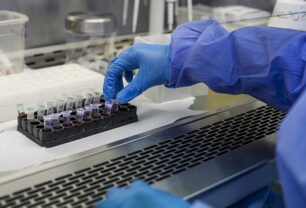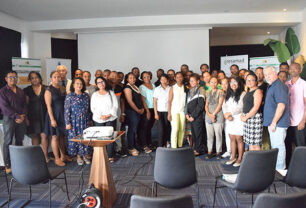Contexte
Dans le cadre de l’amélioration du diagnostic biologi que pour la population et pour contribuer à la surveillance épidémiologique basée sur les laboratoires, la Fondation Mérieux accompagne une approche en réseau pour soutenir les laboratoires à Madagascar. Cette approche permet aux laboratoires de mutualiser leurs équipements et leurs connaissances, mais aussi de devenir autonomes dans la réalisation de leurs activités.
À Madagascar, certains laboratoires disposent de moyens matériels et humains insuffisants pour assurer une bonne pratique des analyses de base.
La Fondation Mérieux appuie le réseau de laboratoires du pays : le RESAMAD, pour assurer la formation des personnels et renforcer la qualité des soins offerts aux populations.
Objectif
Fournir un appui technique à la mise en place d’analyses de biologie médicale destinées au diagnostic et à la surveillance des maladies infectieuses dans une vingtaine d’hôpitaux publics à Madagascar.
Activités
- Réhabilitation des laboratoires participant au projet, qui a débuté en 2007
- Équipement des laboratoires en réactifs et en consommables
- Mise en place de nouvelles analyses de microbiologie
- Appui à la surveillance épidémiologique
- Formation des techniciens et biologistes de laboratoire
- Mise en place de l’assurance qualité
- Mise en place des comités de gestion de laboratoire
- Organisation d’ateliers spécifiques sur la résistance aux antibiotiques dans une quinzaine de laboratoires renforcés en microbiologie
- Mise en place et appui à la tenue du comité de pilotage mensuel du réseau
Réalisations
Le réseau RESAMAD compte 27 laboratoires hospitaliers publics et privés couvrant 22 régions de Madagascar. Les membres partagent leur expertise, harmonisent leurs pratiques, mettent en commun les commandes d’équipements et bénéficient d’un appui en réactifs, consommables et équipements, de formations, de contrôles de qualité externes et d’ateliers semestriels.
13 de ces laboratoires ont été renforcés pour effectuer des tests microbiologiques spécialisés et certains participent à des projets de recherche sur la résistance aux antimicrobiens (RAM). Ils améliorent ainsi les soins aux patients et contribuent à la surveillance biologique et épidémiologique de la RAM. Ils collaborent avec la Direction de la veille sanitaire, de la surveillance épidémiologique et de la réponse (DVSSER) pour fournir des données au système mondial de surveillance de la résistance aux antimicrobiens (GLASS) de l’OMS.
Un exercice de capitalisation d’expérience mené en 2021 auprès du réseau et de ses partenaires a permis de mettre en évidence les apports du réseau au niveau des professionnels du laboratoire, de la prise en charge du patient et de la santé publique.


